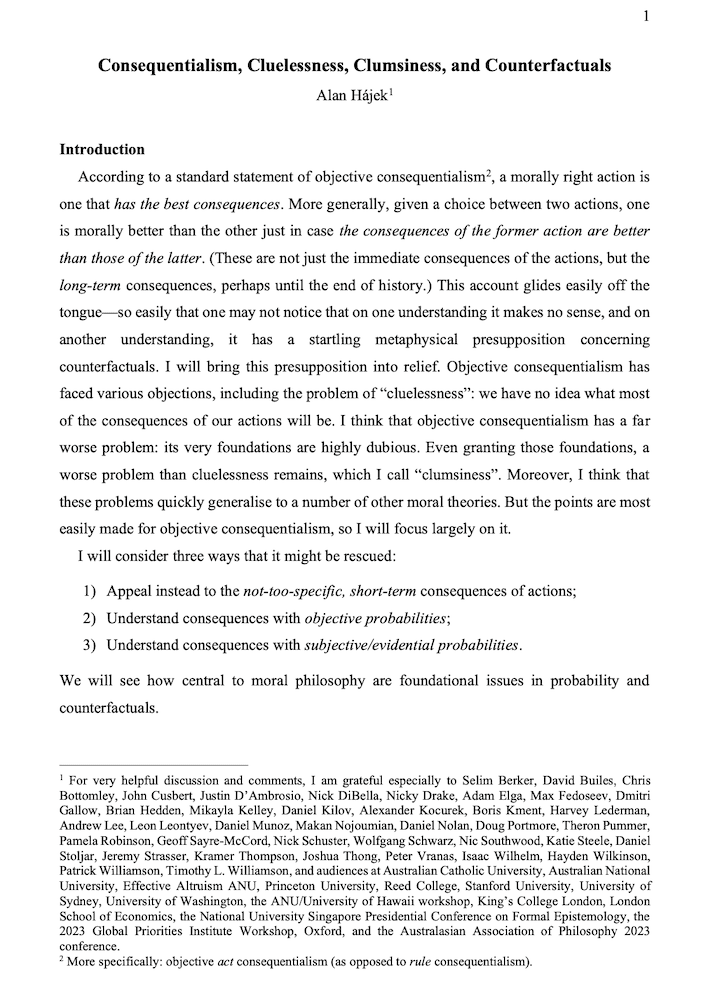Consequentialism, Cluelessness, Clumsiness, and Counterfactuals
Alan Hájek (Australian National University)
GPI Working Paper No. 4-2024
According to a standard statement of objective consequentialism, a morally right action is one that has the best consequences. More generally, given a choice between two actions, one is morally better than the other just in case the consequences of the former action are better than those of the latter. (These are not just the immediate consequences of the actions, but the long-term consequences, perhaps until the end of history.) This account glides easily off the tongue—so easily that one may not notice that on one understanding it makes no sense, and on another understanding, it has a startling metaphysical presupposition concerning counterfactuals. I will bring this presupposition into relief. Objective consequentialism has faced various objections, including the problem of “cluelessness”: we have no idea what most of the consequences of our actions will be. I think that objective consequentialism has a far worse problem: its very foundations are highly dubious. Even granting those foundations, a worse problem than cluelessness remains, which I call “clumsiness”. Moreover, I think that these problems quickly generalise to a number of other moral theories. But the points are most easily made for objective consequentialism, so I will focus largely on it.
Other working papers
A paradox for tiny probabilities and enormous values – Nick Beckstead (Open Philanthropy Project) and Teruji Thomas (Global Priorities Institute, Oxford University)
We show that every theory of the value of uncertain prospects must have one of three unpalatable properties. Reckless theories recommend risking arbitrarily great gains at arbitrarily long odds for the sake of enormous potential; timid theories recommend passing up arbitrarily great gains to prevent a tiny increase in risk; nontransitive theories deny the principle that, if A is better than B and B is better than C, then A must be better than C.
The asymmetry, uncertainty, and the long term – Teruji Thomas (Global Priorities Institute, Oxford University)
The Asymmetry is the view in population ethics that, while we ought to avoid creating additional bad lives, there is no requirement to create additional good ones. The question is how to embed this view in a complete normative theory, and in particular one that treats uncertainty in a plausible way. After reviewing…
The paralysis argument – William MacAskill, Andreas Mogensen (Global Priorities Institute, Oxford University)
Given plausible assumptions about the long-run impact of our everyday actions, we show that standard non-consequentialist constraints on doing harm entail that we should try to do as little as possible in our lives. We call this the Paralysis Argument. After laying out the argument, we consider and respond to…

